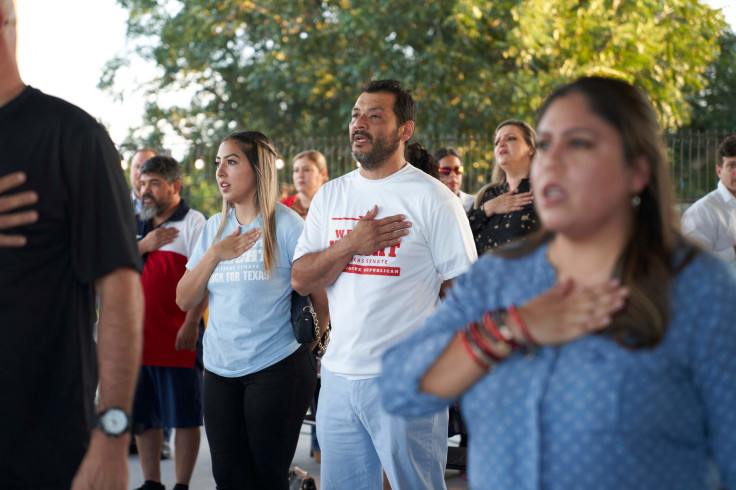
The revocation of Temporary Protected Status (TPS) for hundreds of thousands of Venezuelans in the United States by the Donald Trump administration has left many facing a situation of uncertainty, especially those whose protection expires in April. In that context, an immigration lawyer detailed to the Latin Times different ways in which they could seek to stay legally in the country.
Initially granted under the Biden administration, TPS allowed eligible Venezuelans to legally live and work in the U.S. About 1 million immigrants from 17 countries are protected by TPS, with Venezuelans being among the largest beneficiaries, according to The Associated Press.
This decision in particular affects an estimated 360,000 individuals, many of whom have lived in the U.S. for years. The notice stated that the administration has concluded that Venezuela "no longer continues to meet the conditions" for its 2023 TPS designation, which was meant to be valid until April. "The Secretary has determined in its contrary to the national interest to permit the covered Venezuelan nationals to remain in the United States," the memo read.
This means that Venezuelans will find themselves at risk of deportation if they stay in the U.S. after the deadline. Many have said they fear for their lives if they were to return to their home country. Organizations such as the Venezuelan-American Caucus and the Organization of Venezuelan Political Refugees (VEPPEX) have condemned the move, stating that it unfairly targets law-abiding Venezuelan migrants. In response, protests and legal challenges are already planned to fight the revocation.
What are the options?
In an interview with The Latin Times, immigration lawyer Ángel Leal said that the situation has become "very complicated" for people with TPS. "Each case is different," said Leal, "which is why it's very important that people talk to an immigration lawyer. There are some avenues they can explore, but they need guidance".
He then listed a series of available legal avenues:
1. Seeking Asylum
According to Leal, one of the main options available for Venezuelans losing TPS is applying for asylum. Asylum is granted to individuals who can demonstrate a well-founded fear of persecution in their home country due to race, religion, nationality, political opinion, or membership in a particular social group.
"For many Venezuelans, asylum remains a viable option, especially those who have been politically persecuted or face threats," Leal explained. However, he also noted that asylum applications must be filed within one year of arrival in the U.S., unless the applicant can prove changed circumstances that justify a late filing. "If they can do that, there is hope," he said. It is unclear how big chances of getting asylum in these cases are, especially as the Trump administration has suspended asylum seeking at the southern border.
2. Family-based immigration
Another option is adjusting their status through family connections. U.S. citizens and lawful permanent residents can petition for certain family members to obtain residency.
"If a Venezuelan has a U.S. citizen spouse, parent, or child over 21 years old, they may be eligible to adjust their status and obtain a green card," said Leal. This process, however, can be lengthy and depends on various eligibility requirements, including proof of a bona fide family relationship.
3. Employment-based visas
Some Venezuelans may qualify for employment-based visas, particularly if they possess specialized skills or work in high-demand industries.
"Employers can sponsor foreign workers for visas like the H-1B for specialty occupations or the EB-3 for certain skilled and unskilled workers," Leal explained. While these visas can provide a pathway to legal status, they require employer sponsorship and strict compliance with immigration regulations.
4. Litigation and advocacy efforts
Organizations like the Venezuelan-American Caucus have vowed to challenge the revocation of TPS in court. Adelys Ferro, president of the group, emphasized that legal battles could lead to extensions or new protections.
"No one is alone in this fight. The legal process is complex, but we will take this to the courts to prevent mass deportations of people who have built lives here," Ferro stated.
An uncertain future
While there are still legal options, the path forward remains unclear for many. Venezuelan migrant communities and advocacy groups continue to push for congressional action to provide permanent residency solutions for TPS holders.
For those affected, seeking immediate legal advice is crucial. "Do not wait until the last minute," urged Leal. "Explore all available options, gather necessary documentation, and consult with an immigration attorney to determine the best course of action."
© 2025 Latin Times. All rights reserved. Do not reproduce without permission.





